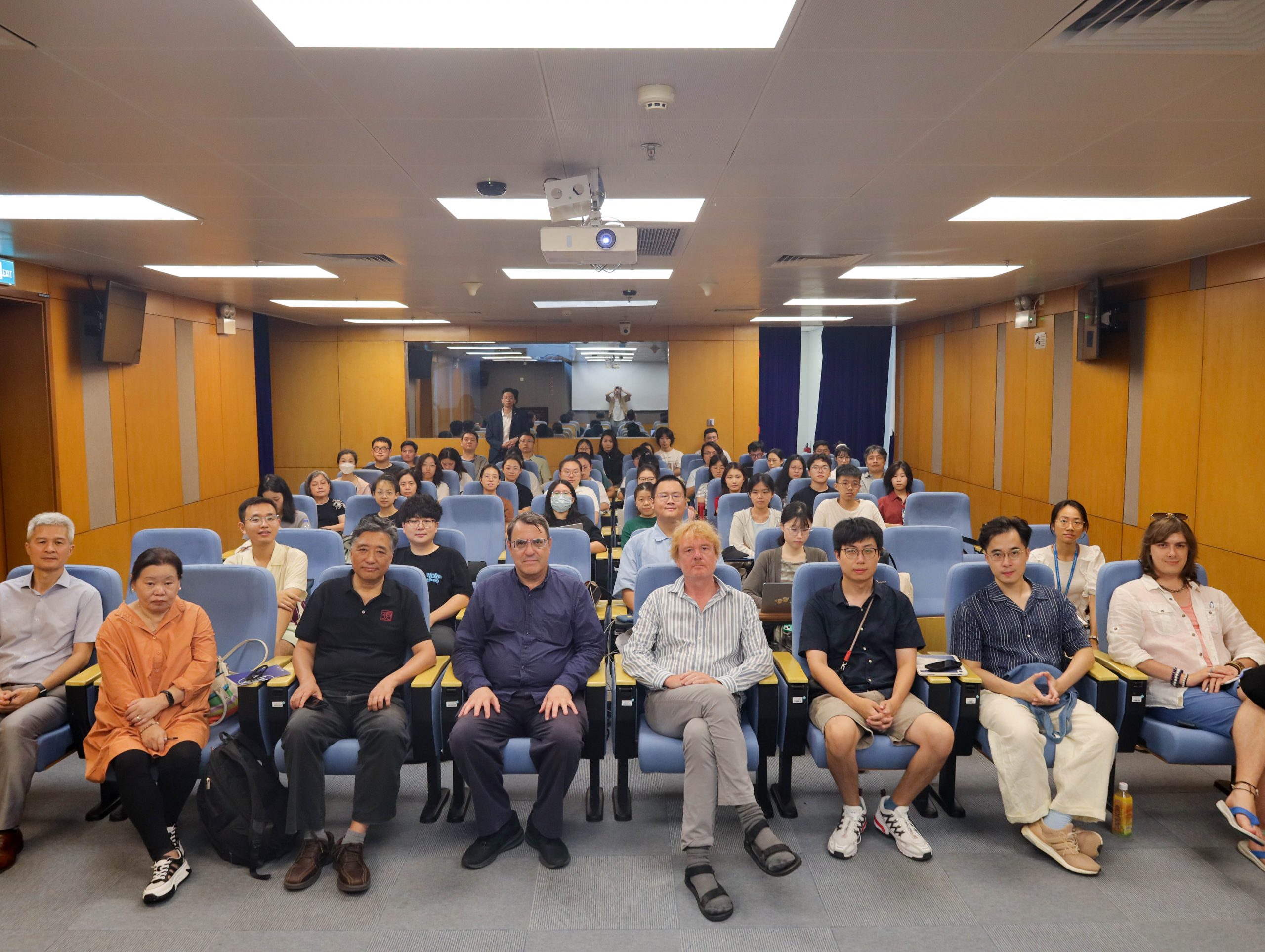
The Philosophy Forum Distinguished Scholars Series 5, co-organized by the Institute of Advanced Studies in Humanities and Social Sciences (IAS) and the Department of Philosophy and Religious Studies of the Faculty of Arts and Humanities (FAH), was successfully held on August 29, 2024, at the UM Gallery Auditorium. The lecture, titled ‘Human Agency and Human Sacrifice: A Neo-Tiantai Perspective’ featured Professor Brook Ziporyn from the University of Chicago as the speaker, Professor Ellen Zhang and Professor Hans-Georg Moeller from the Department of Philosophy and Religious Studies, FAH, as the discussants, and Professor Shaoyang Lin, Head of Academic Program and Publication of IAS and a Distinguished Professor of the Department of History, FAH, as the moderator.
Prof. Ziporyn began by questioning the significance of human sacrifice throughout most of human history and pre-history, and introduced two theories to explain this phenomenon. Georges Bataille’s theory emphasizes the struggle between humans’ structured, purpose-driven lives and their underlying, more primal instincts. He believes that religion and ritual violence act as a release, providing a temporary sense of unity through controlled expressions of violence. René Girard’s theory, in contrast, attributes human conflict to mimetic desire—where individuals copy others’ wants, sparking competition and violence. Girard proposes that societies resolve this through the scapegoat mechanism, where a single person is made responsible for social unrest, and their sacrifice temporarily restores peace.
Prof. Ziporyn then applied Neo-Tiantai Buddhist concepts to these theories, introducing the Tiantai Buddhist concept of the Three Truths (emptiness, provisional positing, and the middle) and suggesting that the key to understanding human agency lies in recognizing the inherent multiplicity and interdependence of all identities. He used the Möbius strip as a metaphor to illustrate how identities can be coherent locally yet incoherent globally, and how this interplay leads to the complex nature of human agency. The lecture concluded with a call to embrace the ambivalence of existence and to recognize the illusory nature of our desires and actions. Prof. Ziporyn proposed that by universalizing suffering and delusion, we can achieve a state of Buddhahood, which is the ultimate end of suffering and the beginning of true clarity.
In the discussion session, Prof. Moeller shared his views on the complex relationship between pleasure and disgust, Prof. Zhang discussed the role of ambiguity in religious and theological contexts and the impact of technology, and Prof. Ziporyn also shared his views on the Buddhist perspective on evil.
The event attracted a wide range of scholars and students, sparking a lively discussion about the role of ritual and violence in human culture and the potential for Buddhist philosophy to provide new insights into these issues.







